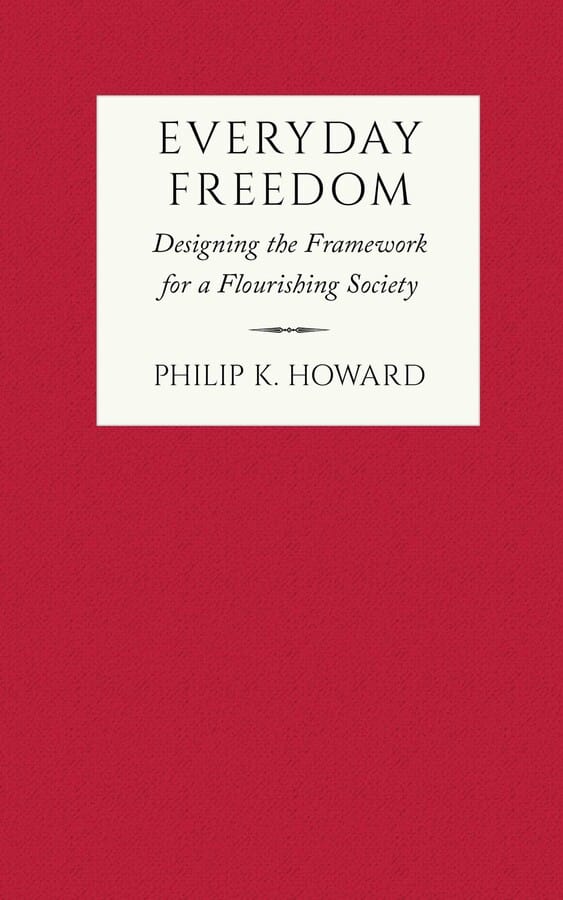
Everyday Freedom
"New teachers come into schools like candles. Then the system starts snuffing them out." (Page 1, Introduction)
Thus begins the introduction of Everyday Freedom by Philip K. Howard, a book which talks about the attitudes, ideas, and mindset that society will need to adapt in order to design a society that flourishes, instead of one that languishes and dies.
Human Beings Need Agency
Making things happen is a powerful driver of individual energy and creativity. (Page 7, Chapter 1)
The basic premise of the book is this: onerous, inflexible, and overbearing laws and regulations at all levels of our lives are making it nearly impossible for anyone to actually do anything anymore. People are losing the ability to think for themselves – because they are no longer allowed! Human beings need agency, and these days, they do not have it.
The Rationalist Delusion
Intuitive powers ... are dominant and decisive. (Page 15, Chapter 2)
What makes a judgment a "good" one? It is a delusion to believe that one can reason their way to good decisions. Rationality and reason must inform our decisions, to be sure, but ultimately decisions come from intuition in the face of complexity – and this intuition cannot be broken down into parts.
This is the reason why we cannot simply "trust the science". The instrument itself is incapable of sensing and measuring what needs to be measured and sensed. Prescriptive laws, policies, and procedures attempt to perfectly map out every conceivable variable and scenario that may arise. Not only is this impossible, it is thought-stopping.
This delusion leads human beings to become mindless automatons, incapable of thinking for themselves.
Conclusion
What is needed is a return to a basic and obvious philosophy: do no harm. This means that individuals should be able to do whatever makes sense in nearly all circumstances, as long as their actions do not harm others. This philosophy is discussed in detail in Adam Smith's Theory of Moral Sentiments. It goes hand in hand with two more principles of justice: to be responsible, and to help others when you can.
Beyond these basic virtues, no more is necessary in order to ensure a good and well-ordered society and economy. Throughout history, attempts to force individuals to comply with arbitrary, nonsensical rules and regulations have typically backfired, and ultimately failed.